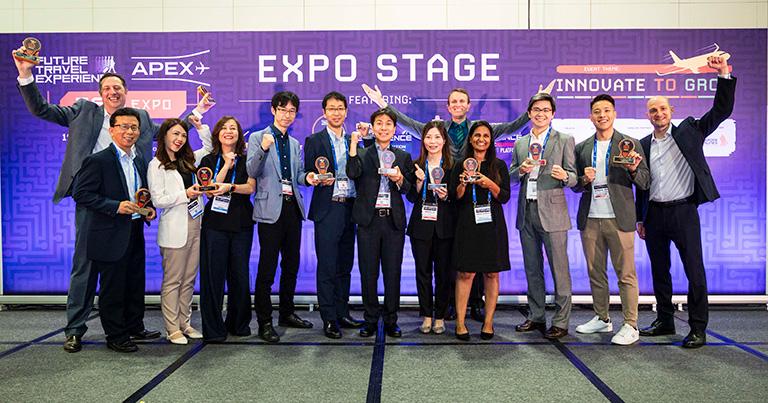
The most pioneering airlines and airports in Asia-Pacific were recognised at the FTE APAC Pioneer Awards 2024 ceremony. The winners were announced on 19 November during FTE APEX Asia Expo 2024 at the Marina Bay Sands Expo & Convention Centre in Singapore. 20 leading airlines and airports from across the region were nominated for pushing the boundaries of innovation, enhancing the customer experience, and playing a vital role in advancing the air transport industry. 10 of the nominees were presented with an ‘Outstanding Achievement’ trophy.
Mark your diary for APEX FTE Asia Expo 2025 – 11-12 November 2025, Marina Bay Sands Expo & Convention Centre, Singapore >>FTE APAC AIRLINE PIONEER AWARDS
AirAsia
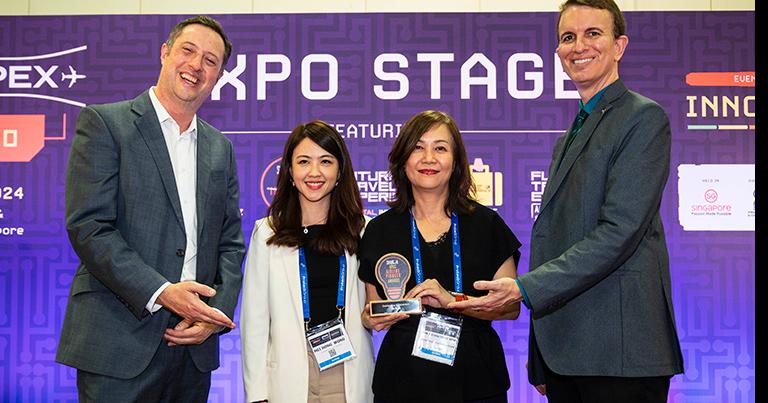
AirAsia describes itself as “a progressive and guest-focused airline”. The carrier was recognised for fast-tracking its digital transformation with the mission of pivoting from being primarily an airline into an all-in-one digital company with close to 20 travel and lifestyle products and services creating the “AirAsia way of life”. AirAsia is on a transformative journey “to elevate every traveller’s experience”. As the first step on this journey, AirAsia MOVE – formerly known as airasia Superapp – has unveiled an updated, refreshed look for its app. From the app layout, to exciting new products, services and deals, the new AirAsia MOVE is designed to help customers “go all the way” seamlessly when they travel. AirAsia MOVE envisions travel complemented by a community-led experience through features such as AirAsia Chat, games, gifting, and a strong loyalty programme that rewards users across its expansive ecosystem.
Using technology to increase efficiency and sustainability is a core focus. As part of this AirAsia is embracing Advanced Air Mobility in collaboration with Avolon-e. They are partnering to commercialise zero-emission eVTOL aircraft and develop an industry-leading Urban Air Mobility platform in Southeast Asia. This also involves leveraging AirAsia MOVE to help support and build an eVTOL ride-sharing platform with Avolon.
Cathay Pacific
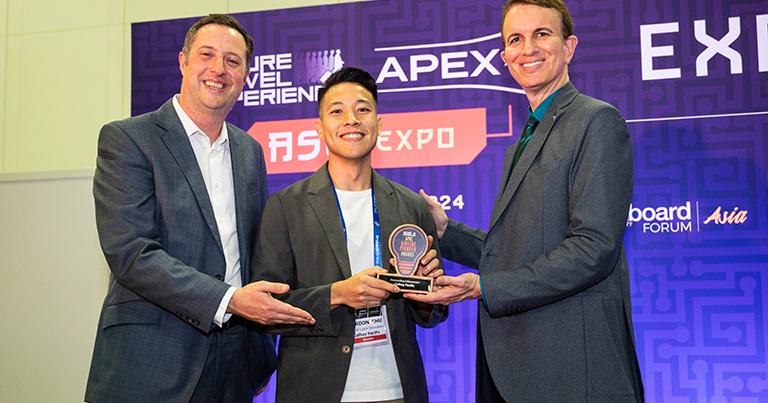
Cathay Pacific has a renewed focus on the customer and recently launched a new master brand to simplify the way travellers interact with the airline. Pioneering enhancements to the customer experience include the all-new business class Aria Suite, featuring in Cathay’s redesigned Boeing 777-300ER cabins since Q2 2024, through to significant sustainability efforts and an impressive IFEC upgrade.
The airline is continuously pursuing the development of new technologies that enable it to give customers more choice and control over their journeys, whether on the ground, in the air or on digital channels. As part of these efforts, Cathay is embracing advanced conversational AI to enhance customers’ digital experience. Under the airline’s conversational AI roadmap, Cathay is optimising its digital customer experience with the most cutting-edge language AI technologies.
The airline has also launched an intuitive booking platform, contactless boarding, and high-speed Wi-Fi. Indeed, customers travelling in First or Business class onboard connected Cathay Pacific aircraft can now enjoy complimentary Wi-Fi service on their flight – the latest enhancement the airline is making to the inflight customer experience.
Cathay is also recognised for its leadership in sustainability. Its drive towards decarbonisation will see Sustainable Aviation Fuel (SAF) account for 10% of total fuel consumption by 2030, and as part of that Cathay has launched Asia’s first major ‘Corporate SAF Programme’. Cathay is also extending its carbon-offset programme and has surpassed its target to cut single-use plastics, with a 56% reduction in single-use plastics use on a per-passenger level compared to a 2018 baseline.
All Nippon Airways
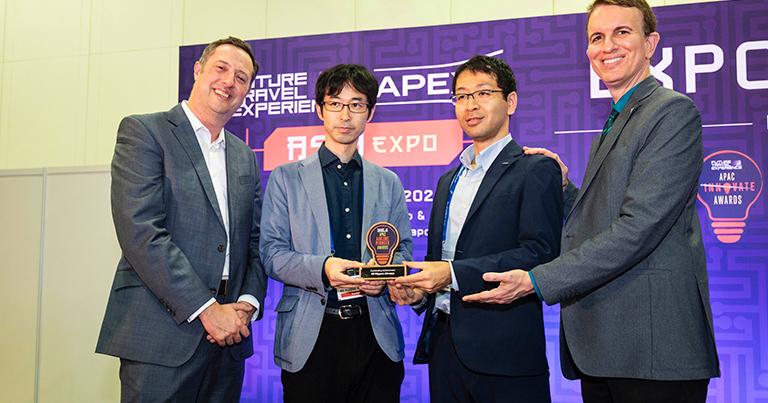
All Nippon Airways (ANA) is continuing its digital transformation journey, with plans to streamline its passenger service systems from FY2025 for “a seamless travel experience”.
The airline has entered the Metaverse with ANA NEO and, as part of this, has launched ANA Granwhale – a virtual travel platform. Leveraging the power of virtual travel, this platform aims to enhance the number of inbound travellers to Japan, as well as promoting and facilitating the sale of specialty and regional products through e-commerce. Meanwhile, ANA Smart Travel aims to provide customers with a smooth and stress-free travel experience. The service model enables passengers to use their smartphones throughout their journey, with the intention of improving convenience and promoting contactless travel. Through these efforts, ANA aims to improve customer experience value, while strengthening its competitiveness and pursuing business efficiencies at the same time.
Meanwhile, ANA this summer started offering a complimentary WiFi service for its Business Class passengers on international flights. ANA’s Premium Economy and Economy Class passengers will have access to complimentary texting with the WiFi service on international flights by the end of March 2025. This is part of ongoing efforts to expand inflight services to provide customers with an even more enjoyable and connected experience onboard.
ANA is also entering the Urban Air Mobility space, in partnership with Joby Aviation, and plans to operate demonstration flights during Expo 2025 in Osaka, Kansai, Japan.
Singapore Airlines
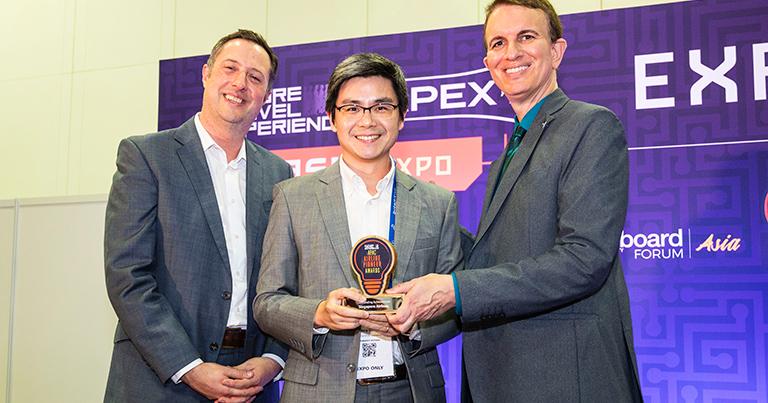
Singapore Airlines was recognised for a collaborative approach to ensuring it remains at the forefront of technological advancements and customer-centric innovation. This approach is multifaceted, collaborating with other airlines, industry stakeholders, technology partners, research and development institutions, as well as open innovation ecosystem partners to exchange knowledge, co-develop solutions and drive innovation in the travel and aviation sector. Indeed, Singapore Airlines recently signed a Memorandum of Understanding to collaborate on the International Aviation Lab established by the Civil Aviation Authority of Singapore to jointly explore, initiate and undertake innovation projects.
The airline works closely with open innovation communities, startups and entrepreneurs through its Digital Innovation Lab, KrisLab, to explore and experiment with new, emerging and innovative technologies and solutions – whether they are from the travel and aviation space or other verticals. An example is Singapore Airlines’ partnership with a startup to develop a crew language competency app that leverages Artificial Intelligence (AI) and speech recognition technology. This offers crew a platform to enhance their delivery of onboard announcements through asynchronous learning, enabling them to enhance their language skills and improve their enunciation.
Singapore Airlines is also embracing Generative AI (Gen AI) and has developed a blueprint for its implementation across the organisation. The blueprint is a strategic plan aimed at identifying impactful Gen AI use cases, exemplifying the airline’s commitment to leverage emerging technologies to improve operations and enhance customer experiences.
Meanwhile, as part of its comprehensive sustainability strategy, Singapore Airlines is on a journey to have a minimum of 5% Sustainable Aviation Fuel (SAF) in its total fuel uplift by 2030. Close collaboration with partners and stakeholders, both in Singapore and globally, is playing a critical role in the airline’s long-term decarbonisation goals. Earlier this year, Singapore Airlines signed an agreement with Neste to purchase 1,000 tonnes of neat Neste MY Sustainable Aviation Fuel.
IndiGo
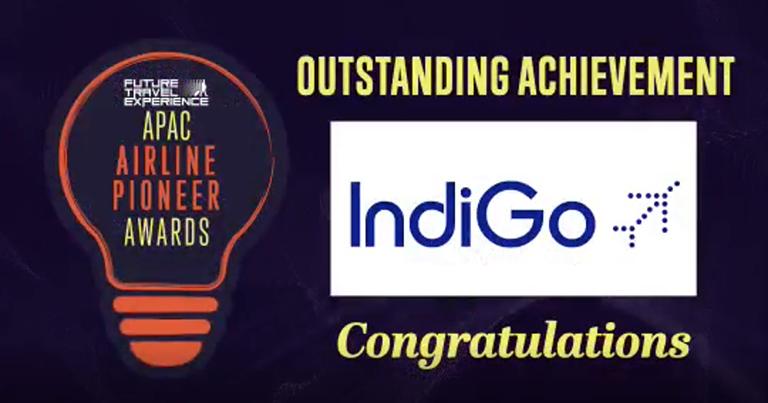
IndiGo was recognised for its comprehensive digital transformation journey. The airline is leveraging advanced cloud technologies, including Artificial Intelligence, Machine Leaning, and data analytics to deliver pioneering solutions and adapt to new industry trends. As part of this process, IndiGo recently concluded its ambitious and intensive cloud migration initiative. This strategic transition enhances scalability, performance and customer service agility.
The airline also recently announced a strategic collaboration with GMR Hyderabad International Airport, with the aim of transforming the passenger experience. The initiative forms the beginning of a digital consortium whose objective is to reshape the landscape of the Indian aviation industry. The consortium is focused on deploying cutting-edge technologies to enhance operational efficiency, passenger experiences, and overall industry sustainability, including Artificial Intelligence (AI) and the Internet of Things (IoT) as well as Blockchain and Data Mesh. While IndiGo and GMR are the founding partners of this industry consortium, the initiative aims to collaborate with multiple stakeholders in the aviation ecosystem to advance the key objectives of driving technological innovation, enhancing passenger services, achieving operational excellence, and embracing sustainable practices to minimise environmental impact.
IndiGo is embarking on an additional new path by introducing this year a tailor-made business product for its A321neo aircraft. Deliveries are scheduled to begin in Q4 2024, and all business class installations are expected to be completed by the end of 2025.
Meanwhile, in May IndiGo selected portable inflight entertainment (IFE) provider AirFi to embark on a trial of wireless, streaming inflight entertainment. It hopes that AirFi’s wireless IFE portal, which is available through the IndiGo mobile app, will prove to be a useful tool for improving the customer experience for digital-savvy passengers.
Mark your diary for APEX FTE Asia Expo 2025 – 11-12 November 2025, Marina Bay Sands Expo & Convention Centre, Singapore >>FTE APAC AIRPORT PIONEER AWARDS
Incheon Airport
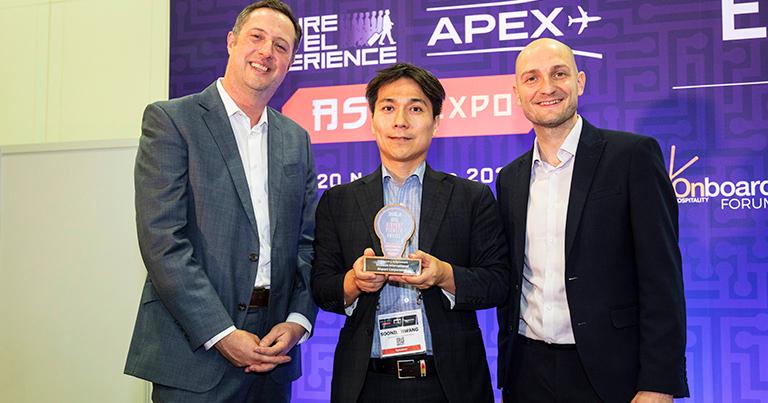
Incheon Airport was recognised for its pioneering approach to baggage transformation. Incheon is participating in the groundbreaking BOOST initiative designed to transform the future of baggage handling through robotics and automation, which has been developed in partnership with Future Travel Experience via the Baggage Innovation Working Group. Each airport partner in BOOST will tackle a specific technical challenge in automating the baggage process – Incheon is demonstrating an odd-sized baggage handling concept by utilising Doosan Robotics to automate the handling of irregularly sized and heavy baggage, classifying and transporting to each terminal building. This will alleviate the workload for baggage handlers and enhance operational efficiency. Each core member of BOOST will work on a unique technical challenge, conducting onsite Proof of Concepts (POCs) to test robotics and other technologies. Information and insights from these POCs will be shared with the other core partners, and the wider BIWG community on a regular basis, allowing all to benefit from multiple tests without having to execute them independently. This collaborative approach aims to speed up the innovation process across all participating airports.
Incheon is also notable for its Extended Reality (XR) Metaverse, which provides an indoor wayfinding service based on 3D spatial data and Augmented Reality technology.
GMR Group
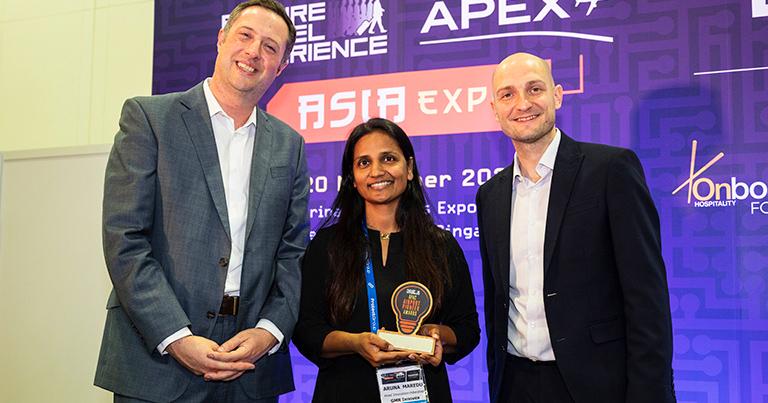
GMR is at the forefront in terms of development and adoption of technological innovations in the region. As one of the largest private airport companies in India, GMR Group is driving several initiatives to enhance business prospects in terms of superior customer experiences, revenue enhancement and cost-reduction opportunities, as well as agile and efficient internal processes. To foster an innovation culture and build a philosophy of open innovation that enables the free flow of ideas and resources between GMR and external ecosystem partners, GMR Innovex, the innovation vertical of GMR, was established. GMR Innovex recently introduced a Next-Gen Intelligent Airport Operating System (iAOS) – a ground-breaking platform leveraging Artificial Intelligence (AI), Machine Learning (ML), and the Internet of Things (IoT) to transform airport operations. By creating a digital twin of the airport, iAOS offers a comprehensive, real-time view of airside, landside, and terminal activities, empowering airports to become smarter, more efficient, and passenger-centric. By leveraging AI, ML and IoT, iAOS has the potential to set a new industry standard for intelligent airport management.
With a major focus on airports and with a broad array of industries under its span, GMR Group is investing in cloud technologies, video analytics, computer vision, data sciences, blockchain, DroneTech, smart tagging, AI/ML, contactless technology, AR/VR, IoT, and Human Machine Interactions (HMI Bots), just to name a few.
Meanwhile, in April 2024, GMR Group acquired an 8.4% stake in WAISL, to further its efforts to deliver world-class, end-to-end digital infrastructure.
Changi Airport Group
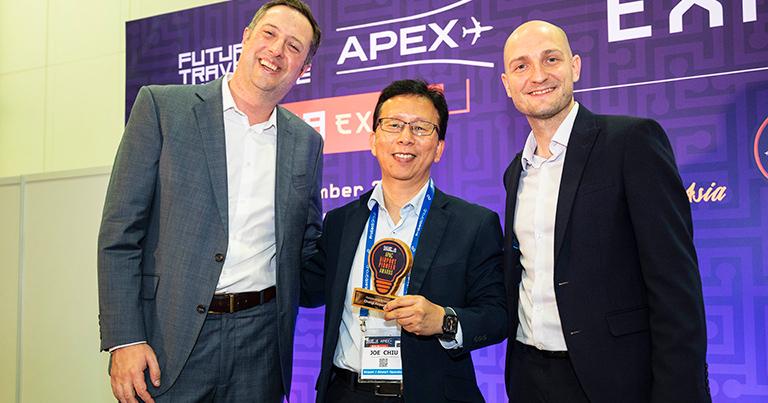
Changi Airport Group was recognised for its efforts in the robotics and automation space. It has been conducting extensive trials on the use of autonomous vehicles at the airside to augment its airside workers in the transporting, loading and unloading of baggage containers. As part of this, Changi has agreed to bring in a fleet of four autonomous baggage handling vehicles to pilot underwing operations at the airport, developed by Aurrigo. The recently-concluded Phase 2A of the trial tested the Auto-DollyTug at Changi Airport, showcasing its resilience in different conditions, including wet weather, heat, humidity, alignment to airport equipment, automated transfer of baggage containers and close quarter operations to aircraft on stand. Over the course of the past two years, the Auto-DollyTug has demonstrated its ability to manoeuvre on the apron while interacting with traditional ground service equipment (GSE). Looking ahead, Phase 2B will focus on testing the Auto-DollyTug’s fleet communication through Aurrigo’s Auto-Connect platform, enabling them to be scheduled and monitored to support the turnaround of a wide-body flight.
Meanwhile, on robotics, Changi has deployed the use of cleaning robots to clean the vast terminal floor areas, as well as grass cutting robots to help maintain the turf at the airside. The airport sees that the use of robotics and autonomous vehicles can help to fulfil routine, rule-based tasks, which improves overall productivity by augmenting the existing workforce. Leveraging these ‘intelligent tools’ is a key enabler in ensuring operations can continue to run smoothly, facilitating a seamless experience for all travellers.
Changi Airport Group also recently signed a Memorandum of Understanding to collaborate on the International Aviation Lab established by the Civil Aviation Authority of Singapore to jointly explore, initiate and undertake innovation projects.
Airport Authority Hong Kong
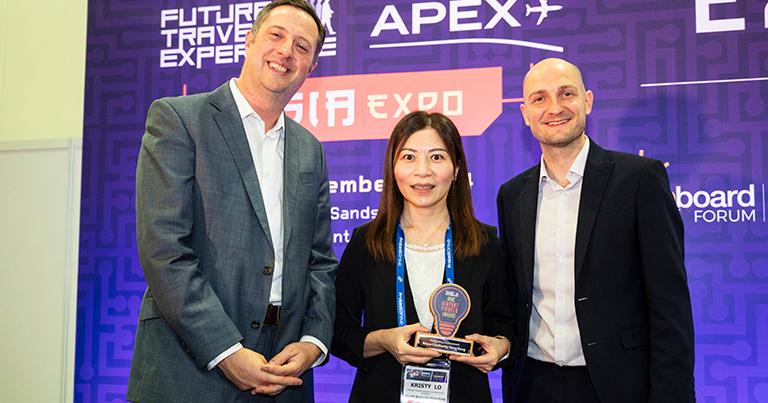
Airport Authority Hong Kong was recognised for further progress on its ‘Smart Airport’ journey at Hong Kong International Airport (HKIA), with the launch of a Smartphone Express Bag Drop Service. A development of HKIA’s Flight Token smart technology, the new service enables passengers to complete online check-in and scan their travel documents with their smartphones before heading to the airport. Upon arrival at HKIA, they can proceed directly to the Express Bag Drop counters and drop their bags by themselves with their smartphones in under one minute, compared to an average of three minutes at the airline counters or Smart Check-in Kiosks.
Passengers are able to complete all departure procedures using only their smartphones and facial recognition technology, including online check-in, travel document verification, bag drop, entering the security area, and boarding through self-service.
The airport explains that Flight Token is the world’s first service that applies facial recognition technology to complete the entire departure process at the airport. The Smartphone Express Bag Drop Service, as an extended service of Flight Token, has been launched in collaboration with airlines, delivering to passengers an even more convenient and efficient departure experience. HKIA continues to work with its business partners to develop and adopt different technological and innovative solutions to further enhance services and operational efficiency as part of its ‘Smart Airport’ journey.
Narita Airport
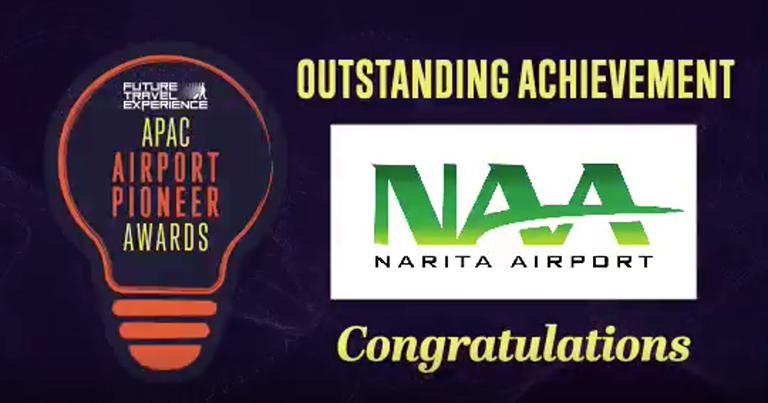
Narita International Airport’s ‘AIR Narita’ system innovation project was launched to rebuild multiple systems into an integrated format as a means of overcoming the labour shortage, promoting workstyle reforms and remaining ahead of the competition between airports. In this project, the airport builds the foundations for continuous business optimisation by integrating all services and systems into one across all departments with the main aim to contribute to the sustainable growth of the airport. The airport is proactively incorporating robotics, Artificial Intelligence (AI) and other cutting-edge information and communications technologies to promote business efficiency and enhanced productivity. It is promoting the use of vehicles with driverless technology at Narita International Airport to overcome the shortage of labour due to the decline in the country’s working age population. Meanwhile, the airport is also moving forward with the use of AI with the aim to improve customer satisfaction. Narita has introduced an AI chatbot service, called BEBOT, to provide real-time responses in chat format to customer questions and requests. Narita International Airport Corporation has also introduced Japan’s first end-to-end biometric boarding process, enabling passengers to travel through the entire airport without using paper documents or touching screens.
Narita International Airport Corporation recently selected Collins Aerospace to deploy systems to improve the passenger experience through streamlined processing and self-service kiosks. ARINC cMUSE, the airport’s Common-Use Passenger Processing System will enable multiple airlines to share desks and boarding gate positions within the Narita Airport terminal in lieu of an airline being anchored to one check-in desk or gate. This flexibility allows airlines to rapidly change locations based on availability and reduce passenger wait times. Additionally, ARINC SelfServ Common-Use Self-Service kiosks speed the check-in process for travellers, allowing passengers to check bags and print boarding passes independently without the need to wait for an airport employee.
Mark your diary for APEX FTE Asia Expo 2025 – 11-12 November 2025, Marina Bay Sands Expo & Convention Centre, Singapore >>





